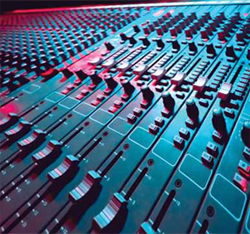Change is the only constant. (“Well, it used to be.” “Oh, what happened?” “It changed.”)
Several years ago, I got a call to mix front of house for Uriah Heep on a mini-tour of the U.S.
I hadn’t mixed a headliner rock band in a long time. Years back, fate took me down the path of product design and manufacturing, and later, I became a specialist in sound system alignment (a.k.a. “room tuning”) for major events and installations.
So I’ve stayed in the game, but only rarely behind a console. However, I eagerly accepted the gig, issuing adequate warning that I’d be rather rusty on the first few gigs.
Uriah Heep is still a hard rockin’ band, though the guys are in their 50s and 60s. Close your eyes while they’re on stage, though, and you’d think they’re still in their 20s. They are top flight musicians demanding top flight sound services, and they possess a work ethic that would put many younger bands to shame.
So looking back at the earlier realm of regional sound systems, particularly in the pre-digital era, it was fascinating to encounter the host of subtle (and not so subtle) differences in how regional SR companies function in today’s market.
Operations
It’s easy enough to point out the obvious migration from analog consoles, outboard effects, and analog crossovers to that of digital consoles and DSP loudspeaker controllers—and I have a few observations to share in a moment.
But what struck me most when reflecting on the past was the really big changes in attitudes and skill levels that seem to ride piggyback on the improvements in equipment and technologies. At each stop (the band was not carrying production, only back line), the warm greeting from the local SR company, the show of support and respect, the skill of the local personnel in handling stage patching, the configuration work on the digital consoles, and a plethora of other support tasks, was virtually equal to carrying a staff of A2s trained just for this gig.
Years back, I remember cold shoulders, unwillingness to accommodate the band’s engineer in any way, and little or no assistance in sussing out a new console, or a new effects device, or for that matter, holding a meaningful discussion on how to optimize aspects of the system in general. The mantra was, “You’re on your own, son.” But now it’s the polar opposite – and how refreshing that is. A good attitude really helps a show go well; the value cannot be overestimated.
I encountered guys in their 20s, guys in their 30s, and older company owners closer to my own age (then 58), and in all cases the competency level was a true eye opener. As recently as 20 years ago I did not find this to be the case, expect in rarefied situations such as the Grammys and Oscars.















